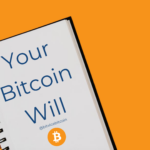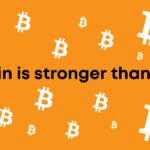Weekly News
The widespread chaos in the South African provinces of Kwa-Zulu Natal and Gauteng are evidence that previously “safe” investments such as residential, commercial and industrial property are eligible to be completely undermined by a black swan event. Similarly, intangible investments such as share portfolios, pension funds and discretionary investments may also be negatively influenced by the same geo-political risks. Bitcoin acts as insurance to this.
Some of the other news items this week are:
1. An update on Paraguay and Bitcoin
A lot of noise has been made recently about which country will be adopting Bitcoin next, after El Salvador took the plunge a few months back. Paraguay has emerged as a lead contender, with a proposed draft bill that is circulating at the moment.
Some key takeaways from from the proposed draft bill include:
- Bitcoin to be regulated as property, not legal tender
- Miners must obtain a mining license and register as industrial electricity users
- Rehypothecation (fractional reserve banking) of Bitcoin custodied by a central custodian is restricted.
What is important to note is that this bill is nowhere near the parliamentary process of adoption just yet and most likely will change a lot before/if it gets adopted as law. However, the fact that it is written indicates that there are several lawmakers in Paraguay that are taking it seriously. That being said, the bill as written, does not inspire confidence from Bitcoiners. It seems to create numerous regulatory hurdles rather than deregulation. This is in stark contrast to El Salvador, which sought to create a business enabling environment.
Furthermore, there has been a lot of chatter about miners moving to Paraguay, following the China crackdown. This should come as no surprise based on the massive energy surplus produced by the landlocked South American nation through 3 hydro electricity dams. The nation is 100% hydro-powered and consumes roughly only 30% of the total energy it produces. Over 60% of Paraguay’s electrical production is exported to neighbouring Brazil and Argentina, indicating that there is scope for additional offtake via Bitcoin mining. Furthermore, the country has very attractive residency laws which are aimed at attracting foreign investment.
Read more about the proposed bill here and here.
2. BlueWallet implements new Lightning Dev Kit implementation (new features)
Open source Bitcoin and Lightning wallet, Blue Wallet, has announced that they will be implementing the new Lightning dev kit (developed by Square Crypto and released a few weeks ago) into the application. This will provide those who make use of BW’s Lightning Wallet with several new features. These include:
- The ability to fund a lightning channel from an air-gapped hardware wallet using PSBTs.
- Create encrypted channel backups (to restore your channels if your device crashes/gets stolen/lost)
- Enhance LN privacy by allowing users to connect their own Electrum Private Server
Read the full details here.
3. Bitcoin mining hash rate update
Following the crackdown in China on Bitcoin mining, which caused a hash rate exodus from both the network and the country, Bitcoin mining hash rate dropped to a low of approximately 66 ecto hashes per second. Since then, hash rate has rebounded strongly as miners have come back online in Russia, Kazakhstan, Argentina, Paraguay, North America and even some parts of Africa.
Currently, total hash rate is approximately 106 ecto hashes per second.The difficulty adjustment over the last period was -5%, which further increases the profitability of existing miners, incentivising more miners to join the network. The difficulty adjustment mechanism is part of the brilliance of the Bitcoin protocol, as it adjusts the relative difficulty of mining up or down every 2016 blocks (roughly 2 weeks) in order to ensure that a block is solved every 10 minutes on average. This means that the issuance rate of new Bitcoins to miners remains fairly constant over time.
To see the latest hash rate charts, click here.
The recent riots in South Africa illustrate why you should own Bitcoin as insurance
Over the last week, South Africans (and the world) have stared on, slack-jawed in disbelief as the entire city of Durban and vast parts of the province of KZN have been sacked. The scale of destruction beggars belief and approaches something biblical. Over one hundred shopping malls, housing thousands of retail stores, have been gutted. All of their contents stolen and large amounts of their infrastructure destroyed, leaving thousands of businesses in ruin and an entire province in shambles.
Besides the painfully apparent short term damage, medium term consequences such as food security are a very real problem and the long term implications of what just happened will be severe. Inter-community relations are in tatters and may take years to rebuild. While several positives have emerged from the entire fiasco, such as decentralized civilian community defense structures, the overall situation is rather bleak. This will take the city years to recover from. Besides the damage to vital infrastructure, tens of thousands of property owners are finding themselves in a very precarious position.
Many South Africans have used real estate as a long term investment strategy for decades and up until roughly 2017, have been handsomely rewarded for it. Until recently, the KZN north coast has been a fantastic residential property investment destination, with many of the coastal towns being prime beneficiaries of the property boom as capital fled the decaying city centre and found a new home up the coast. That was until last week. Individuals who own property in these towns are now sitting with assets that precious few would like to purchase at the moment. Nobody who can afford a beach front property, at the going rate, is going to accept the risk premium associated with a north coast property right now. Many are clamouring for the exits and there are no buyers. This is what a black swan event looks like.
The thing with real estate is that for it to be a winning investment strategy it requires several key ingredients, the most important of which are sound property rights and rule of law. The riots in Durban completely undermined both of these, leaving communities to fend for themselves against throngs of looters with scant to non-existent support from law enforcement. In the space of a week, the property portfolios of many individuals have been significantly affected due to these political events, which are completely outside of their control.
This is why we Bitcoin.
Bitcoin is not subject to the capacity of the police, or the efficiency of the court system and the impartiality of the judiciary. It does not care if you live in a warzone or a village in the Austrian Alps which last saw a violent crime during the second world war. Bitcoin is designed to function outside the purview of any person, institution or government and as such can offer you protection against these actors, in your time of need. Compare the person who owns a house in Ballito vs his neighbour who rents his, but invested the same amount as the deposit for the house into Bitcoin. Who has a more liquid and secure asset right now?
Compare the thirty something year old accountant who manages his own stock portfolio from his 100% mortgaged Umhlanga penthouse to his high school dropout friend who rents in Morningside but has been stacking Bitcoin every month for the past 3 years. What about 2 weeks ago, when everyone was standing around the braai in Hillcrest telling James that he has taken on far too much risk by accumulating Bitcoin on the regular, and that he should rather invest in something safe like commercial property?
Analyse the assumptions on which the success of your investment rests. Diversifying your portfolio and investing in Bitcoin is a hedge against many geo-political risks. While Bitcoin comes with its own suite of risks, those of physical damage to property are excluded.
At the end of the day, I fear that Durban is a precursor for what is to come in South Africa. The government security cluster is woefully unable to effectively protect life and property and does not have a handle on the cause or perpetrators of the Durban riots. While we can hope that what was seen in KZN is limited to tribal infighting within the ANC, the possibility remains that the same tactics of destabilization can be deployed in cities all over the country. This raises serious concerns for property owners nationwide.
So why not take out some insurance? Looting mobs can’t burn your Bitcoin, they can’t steal it from you and they can’t destroy its value by chasing away all the buyers. Bitcoin doesn’t need rule of law or property rights in order to protect your value. All it needs is self-custody.
Maybe this is the end of the violence and the Durban riots were just a flash in the pan? Or maybe this is just the start of it. Either way, I sleep better at night knowing that I have Bitcoin.
Bitvice Podcasts and Media
On the last episode of By The Horns, we interviewed Louis Nel, a Durban resident who was on the ground during the riots. We chatted to him about his experience of the riots, how his community pulled together to provide security for each other and how fast the supply chain disruptions manifested in food shortages. On a completely different note, and the initial reason for the interview, we discussed Louis’ involvement in fighting a myriad of Bitcoin and crypto related scams in South Africa. Louis details how to spot a scam and the dirty tricks they use against those who are trying to expose them.
This week we are excited to chat to Kanthan Pillay. Subscribe to our channel here to be the first to know when the episode goes live.
By The Horns is a Bitcoin podcast about South Africa. You can follow our discussions via video on YouTube or via the audio version on Spotify, Google Podcasts or Apple Podcasts. If you are listening on a different podcast app, here is our RSS feed.
Book a FREE 30 min call and get the answers that you need
If you have been sitting on the fence about when is the right time to buy Bitcoin, or you don’t quite feel like you have all of your questions answered and are still unsure, why not have them answered by myself? I am making a few time slots available over the next few weeks dedicated to answering your questions one on one.
If you wish to take me up on this, schedule a call with me (Ricki) by clicking the link, and I will make myself available to answer all of your questions in person.
Bitcoin is a complex subject that took me years to wrap my head around, having somebody point you in the right direction could be helpful.
Like they say, Africa isn’t for sissies. Buckle up, get some Bitcoin and let’s get through this.



